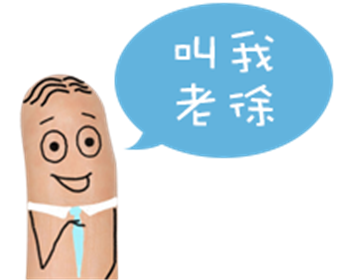(单词翻译:单击)

In China, you are what you do. The boss of any workplace — even if that is a greasy spoon or corner store — is called “boss”. Even journalists are referred to by status-laden honorifics. So I am not Ms Waldmeir or Patti, but Teacher Waldmeir. Reporters here may want for press freedom but at least they receive a title they might not merit elsewhere.
在中国,你的工作就是你的身份。任何一个工作场所(即便只是一个廉价小饭馆或街角小店)的所有者都被称为“老板”。甚至连记者也被冠以代表身份的敬称。所以人们对我的称呼不是沃德米尔女士,也不是帕提,而是沃德米尔老师。中国记者可能欠缺出版自由,但至少他们获得了一个在其他国家可能无法得到的称呼。
Even within the family, names were traditionally hierarchical: the first born was laoda (“the big one”); the second child laoer or, literally, number two. It’s all in the title.
甚至在家庭内部,名字通常也会显示出等级性:第一个出生的孩子叫老大;第二个孩子叫老二。称呼就能说明一切。
What happens, though, when a boss is not a “boss”?
然而,当老板不被称呼为“老板”时会怎样?
One of China’s biggest property developers, Vanke, is trying to find out. Recently the Shanghai branch banned staff from calling each other zong — literally, “general manager” but functionally “boss”. All staff must call each other by English names or nicknames, or they can add the prefix “young” or “old” before the surname. Basically, anything but zong. That goes for everything from meetings in the C-suite to texts or WeChat messages about which bar to hit for a quick baijiu after work. To make sure the order is obeyed, the zong must pay the Rmb100 fine if it is transgressed. Vanke wants no more zongs.
中国最大房地产开发商之一万科(Vanke)正试图找到答案。最近,万科上海分公司禁止员工相互称呼“总”,这个称呼的字面意思是“总经理”,但从职能上来看意思是“老板”。所有员工都必须相互称呼对方的英文名或昵称,或者可以在姓氏前加上“小”或“老”。总之,除了不能称呼“总”,怎么称呼都行。这一规定适用于所有场合,从高管会议到邮件、再到约下班后去哪个酒吧小酌一杯的微信消息。为了确保这一要求得到遵守,万科规定,如有违反,被称呼者每次将罚款100元人民币。万科不需要更多的“总”。
This comes from the land of “just call me comrade” — the title Beijing used to require all Communist party members to use, regardless of their status, to smash hierarchy and create an egalitarian society. And we all know how that turned out.
中国过去曾推行过“请叫我同志”的做法,当时中国要求所有共产党员都使用“同志”这一称呼,不管级别高低,目的是消灭等级制度和创建平等社会。我们都知道最终结果如何。
Vanke can be forgiven for having another go. Chinese workplaces are hierarchical. Maybe every company in the world is the same and the rest of us just like to pretend it isn’t. In China, however, no one pretends; in many offices sycophancy is the order of the day. Vanke, however, is betting that sycophancy is not conducive to innovation — the theme of the decade for Beijing, which is banking on it to help China escape a period of slowing growth.
万科再次进行这样的尝试情有可原。中国的职场是等级森严的。或许,全世界的公司都一样,其他地方的人们只是喜欢假装不是这样。然而,在中国,没有人假装;在很多办公室里,拍马屁是一种风气。然而,万科认为,拍马屁不利于创新,创新是中国本10年的主题,中国政府希望借助创新帮助中国摆脱经济增速放缓时期。
“Vanke is trying to change the culture,” says Katherine Xin, professor of management at China Europe International Business School in Shanghai. “I see it as a signal for culture change from a hierarchical to a flat organisational structure.”
“万科试图改变这种文化,”上海中欧国际工商学院(Ceibs)管理学教授忻榕(Katherine Xin)表示,“我把这视为一个信号,代表着一种文化变革——从等级分明的组织结构转向扁平组织结构。”
One Vanke employee, who did not want to be identified even by a nickname, says: “After the new rules were released, my boss — let’s say his surname is Xu — gave us a choice to call him either by his English name, or Old Xu.” “Old” may not sound like the kind of prefix western staff would append to their boss’s name.
一名万科员工表示:“在新规出台后,我的老板(假设他姓徐)让我们选择要么叫他的英文名,要么叫他老徐。”这名员工甚至不愿透露他的昵称。西方员工应该不会用“老”加上姓氏来称呼自己的老板。
In China, by contrast, it is inoffensive, casual and commonly used in and out of the workplace. No need to report that one to HR. “I think it makes us feel closer. The company wants us to have a sense of belonging.”
相反,在中国,这样的称呼并无不敬,人们常常在工作场合和其他场合随意使用这种称呼。所以别误会,这不是歧视,无需向HR报告。“我认为,这让我们感觉更亲密。公司希望我们有一种归属感。”
So has it levelled the playing field at Shanghai Vanke? The same employee says the hierarchy still exists. “Even though the company has promised to make information transparent, we still don’t find out about executives’ decisions right away.”
这是否让上海万科的竞争环境变公平了?这名万科员工表示,仍然存在上下级之分。“尽管公司承诺让信息透明,但我们还是不会马上知道高管们的决定。”
Ms Xin says the practice, which is in any case still very rare, is most common at technology companies. At Alibaba, the Chinese ecommerce group, employees can choose their own nicknames. Many were initially required to choose from Chinese martial arts novels because Alibaba’s boss — oops, I mean Jack Ma — is a fan. Those quickly ran out so staff can now choose more freely. Employees say that, even though he has selected a nickname, most still call him Ma Zong. Mr Ma, who previously taught English, has recently appealed to executives to call him Teacher Ma instead.
忻榕表示,这种做法在科技公司最为普遍(不管怎么说,这种做法仍非常罕见)。在中国电商集团阿里巴巴(Alibaba),员工可以选择自己的昵称。起初,很多人需要从中国武侠小说里选名字,因为阿里巴巴的老板(哎呦,我是说马云(Jack Ma))喜欢武侠。这些名字很快就被用光了,因此员工们现在可以更自由地选择。员工们表示,尽管马云选择了一个昵称,但多数人仍称呼他马总。最近,曾当过英语老师的马云呼吁高管们称呼他马老师。
Ms Xin herself forbade her executive MBA students from calling each other zong in the classroom, “but many of them have not been called by their names for so many years, they are almost shocked by it”, she says. “If I call them by their full name they assume they are in trouble, like my daughter would.” They revert to zong when socialising after class.
忻榕自己禁止她的高管MBA学员在课堂上相互称呼“总”,“但其中很多学员已经多年没有被别人叫过名字了,这项规定几乎让他们震惊”,她表示,“如果我称呼他们的全名,他们会认为自己有麻烦了,我女儿听到我称呼她全名时就会这么想。”他们在课后交往时还是会使用“总”来相互称呼。
“For those who are much older than me or high up in the company,” says the Vanke employee, “their English names stick in my mouth and I think it’s not appropriate to call them that, so I call them ‘teacher’.”
“对着那些比我年长得多或者在公司里位高权重的员工,”这名万科员工表示,“英文名实在叫不出口,我认为这么称呼他们不合适,于是我就称呼他们为‘老师’。”
It will take more than a few English monikers or hero nicknames to flatten the Chinese hierarchy but it’s a start. Maybe one day soon we’ll be asking where all the zongs have gone.
要消除中国的等级制度,需要的不仅仅是几个英文名或主角昵称,但这是个开始。或许很快就会有那么一天,我们会问那些“总”都到哪里去了。


